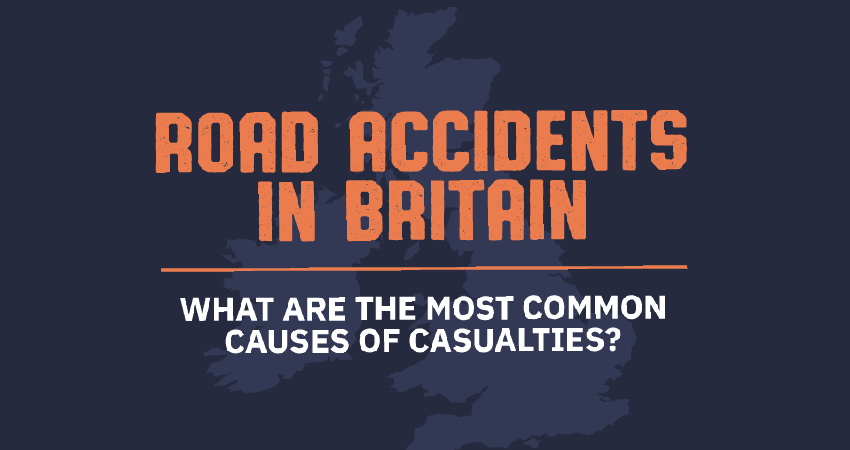
There are many causes for road accidents; driver distractions, car malfunctions, weather conditions and more. We wondered what are the most frequent and what are we Britons doing on the roads that cause us to have so many accidents per year?
Unfortunately, the number of road deaths in Britain hit a five year high back in 2017. Some 24,101 people were seriously injured whilst driving in 2017 which is a 9% rise since the previous year. However, it should be noted that the Department for Transport (DfT) warned that comparisons between percentages the year before should be ‘interpreted with caution’ due to adaptations to the way police monitor and classify the severity of injuries.
Using the latest statistics from the Department for Transport, Regtransfers has researched the top causes of road accidents - here is a breakdown of the top 10 that occur in a year throughout Britain:
- Driver failed to look properly - 42,189 accidents reported
- Driver failed to judge other person’s path or speed - 21,211 accidents reported
- Driver was careless, reckless or in a hurry - 17,845 accidents reported
- Driver had poor turn or maneuver - 15,560 accidents reported
- Loss of control - 12,151 accidents reported
- Pedestrian failed to look properly - 8,687 accidents reported
- Slippery road surface - 7,327 accidents reported
- Driver was travelling too fast for conditions - 6,468 accidents reported
- Driver was following too close - 6,040 accidents reported
- Driver was exceeding speed limit - 5,102 accidents reported
The most common cause of accidents is to driver error. Over 100,000 (108,479) crashes occured in the UK due to cars suddenly braking, drivers failing to look properly, poor car maneuvering and/or loss of control. Not only do road accidents cost the driver, but they are costly to the people involved in the crash, insurance companies, emergency service units and local councils. Car accidents also cause traffic disruptions and emotional distress if there are any fatalities or injuries.
A new survey has revealed that a third (36%) of British drivers have been financially affected by a car accident that wasn’t their fault. On average, the amount paid by motorists to cover policy excesses and non-fault insurance claims is £215 - this includes hiring temporary cars, travel expenses and any other financial burdens. Thankfully, if your plate is cracked in a collision, you can easily order a replacement from around £10, as you legally own the registration, whether it's physical or not. Many people believe the at-fault motorists’ insurance company pays out for all those affected, however, this is not the case.
With car accident and injury percentages increasing year on year - and statistics to show just how many causes and types of crashes there are - drivers need to be aware now more than ever while on the road.
For more information on the UK’s most common road accidents you can visit: road accidents in britain
How bad are divers in your area? Check out our interactive map of penalty points.
